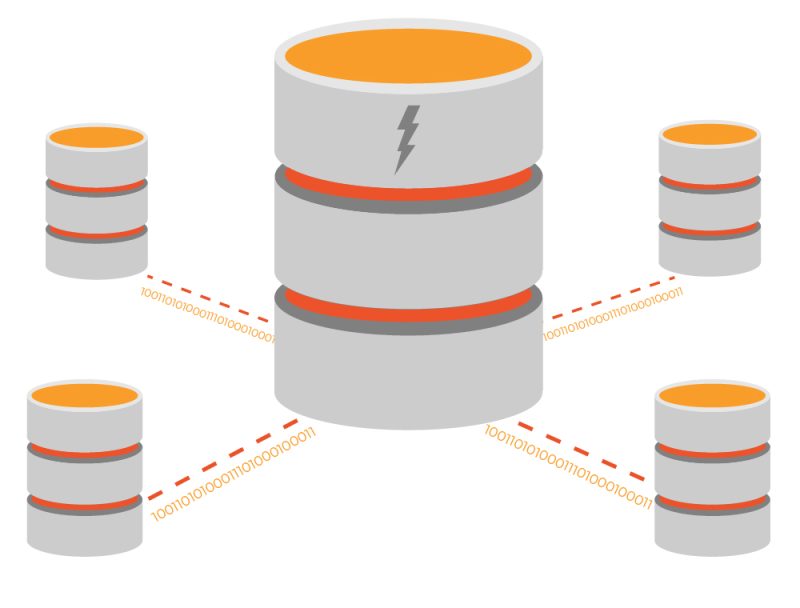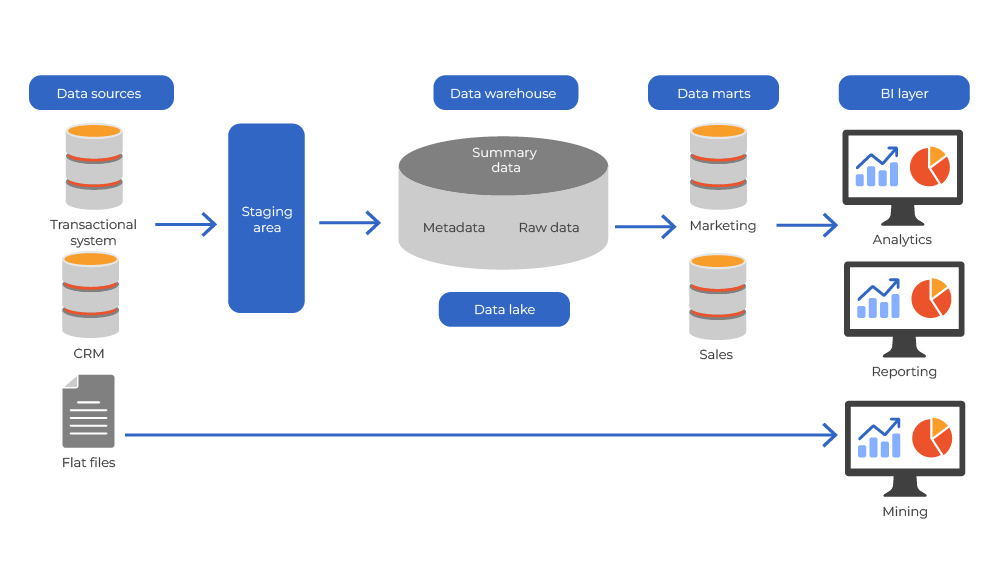Data Warehouses
Basic Concepts
Data Warehouse Terminology
In the 1980s, a new data revolution began. Not only was data being used by businesses for operational efficiency at the time, but it became incredibly important for deriving insights and making decisions for long-term success.
The most successful organizations employ their data to create value and growth. In other words, organizational intelligence comes from robust data.
The most successful organizations employ their data to create value and growth. In other words, organizational intelligence comes from robust data.

What’s a Data Warehouse?
At its core, a data warehouse refers to the electronic storage of large amounts of information, designed for query and analysis ahead of transactional processing. A data warehouse is not a product but an environment. In other words, it’s an informational system architecture that provides users with current information as well as historical data to support decision-making—a task that’s difficult to accomplish in more traditional data storage.
Data warehouses provide confidence in an organization’s data quality. The best data warehouses will ingest data from a number of existing sources and use consistent formats and artificial intelligence tools to cleanse data quality automatically, deduplicate records, and provide a more complete dataset.
With regard to data storage solutions, there are some key differences between data warehouses and others that ought to be considered, as noted in the following tables.
Data warehouses provide confidence in an organization’s data quality. The best data warehouses will ingest data from a number of existing sources and use consistent formats and artificial intelligence tools to cleanse data quality automatically, deduplicate records, and provide a more complete dataset.
With regard to data storage solutions, there are some key differences between data warehouses and others that ought to be considered, as noted in the following tables.
Data Warehouse v. Database
| Database | Data Warehouse | |
|---|---|---|
| Accessibility | Optimized for read write access of a single or few data records | Aggregates many data sources; optimized for analytical workloads that typically involve aggregating all rows of certain columns of fact tables |
| Storage | Single layer of information presented | Layered information in standardized formatting |
| Usage | Recording and retrieving information | Storage of large amounts of information |
Data Warehouse v. Data Lake
| Data Lake | Data Warehouse | |
|---|---|---|
| Accessibility | Raw, unstructured data | Structured, integrated data |
| Storage | Simplified storage bank | Standardized storage vault |
| Usage | Unformatted or loose formatting | Relational formatting |
Data Mart vs Data Warehouse vs Data Lake Architectures

Data Warehouse v. Data Mart
| Data Mart | Data Warehouse | |
|---|---|---|
| Accessibility | Focused | Broad |
| Storage | Dependent or independent* | Integrated |
| Usage | Small subsets of a data warehouse but typically aligned with business division. | For the entire enterprise |
* A dependent data mart is dependent on a data warehouse as the source for its data, resulting in less control over the data; an independent data mart is not dependent on a data warehouse, and data is ingested from different outside sources, granting more control over the data.
At Eccovia, we believe in the power of data to change social and health outcomes for vulnerable populations. That’s why ClientInsight offers a powerful data warehouse that not only manages your data but also cleanses it, deduplicates client records, and uses machine learning to analyze and forecast needs. Learn more by contacting us.
We’re Here to Help
For more information about how our ClientInsight platform can help you automate your data quality checks, account for your successes, and gain greater vision and insight into your data, schedule a demo and our experts will reach out to you.
Get Started
By Phone
Contact us today to learn how Eccovia can help you achieve improved outcomes for the people your organization serves.
To call us right now, just click the phone icon below.
By Form
Please fill out the form below if you’d like to speak with one of our experts.